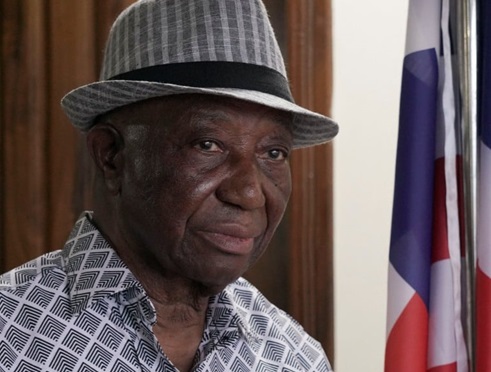In a bold social media post, political observer Wantoe Teah Wantoe has raised eyebrows and sparked controversy by accusing President Joseph Boakai of fostering an environment of tribalism and nepotism in Liberia, particularly highlighting the dominance of Lofa County in key government positions.
Wantoe’s post described the current political landscape as one where “Lofa first and everyone else second,” suggesting that the president’s appointments reflect a troubling trend of prioritizing regional loyalty over national merit.
He listed a staggering number of influential positions filled by individuals from Lofa County, asserting that this practice undermines the principles of fairness and meritocracy in governance.
The post pointed to a range of high-ranking officials, all hailing from Lofa, the home county of Prrsident Boakai. Those cited include:
1. Ministry of Finance – Augustine Kpehe Ngafuan II
2. Liberia Revenue Authority- Mr. Dorbor Jallah, Commissioner General
3. Governor, Central Bank of Liberia – Henry Saamoi
4. Minister, Ministry of Commerce and Industry- Amin Modad
5. Minister, Ministry of Education – Jarso Maley Jallah
6. National Commission on Small Arms and Light Weapons- Chairman James Fromayan
7. Liberia Immigration Authority – Commissioner Steve Zargo
8. General Services Agency – Director General Lavela Kortimai
9. National Port Authority Managing Director – Sekou Hussein Dukuly
10. Liberia Aviation Authority – Director General Julius D. Dennis, Jr.
11. Liberia Telecommunication Authority – (4 out of 5 Commissioners from Lofa)
12. Chief of Staff, Armed Forces of Liberia – Col. Davidson T. Forleh
13. Cllr. Augustine C. Fayiah, Solicitor General, Ministry of Justice- Lofa
14. Minister, Ministry of Youth and Sports – J. Cole Bangalu
15. Deputy Financial Intelligence Agency – Amos Boakai
16. Minister of Internal Affairs – Francis Sakila Nyumalin
17. Liberia Agency for Community Empowerment (LACE) – Director Julius Sele
The post has ignited discussions across social media platforms, with many users expressing their concerns over the implications of such a concentrated representation from one region. Critics argue that this approach not only marginalizes other regions but also raises questions about the qualifications and capabilities of the appointed officials, as the emphasis shifts from competency to regional affiliation.
As the political landscape in Liberia continues to evolve, Wantoe’s claims may resonate with a populace that is increasingly aware of the importance of equitable representation in governance. The implications of these allegations could have significant repercussions for President Boakai’s administration, as calls for accountability and a more inclusive approach to governance gain momentum.








